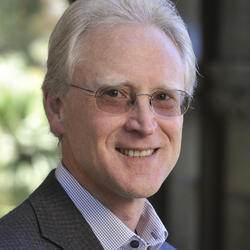David L. Clark

David L. Clark, PhD
- Affiliate
- Laboratory Fellow Director, National Security Education Center Los Alamos National Laboratory
Biography
David L. Clark is a retired Los Alamos National Laboratory (LANL) Fellow and Guest Scientist with the Laboratory’s Glenn T. Seaborg Institute for Actinide Science. He was LANL’s Director of the National Security Education Center from 2013-2025.
His research interests are in the molecular and electronic structure of actinide materials, applications of synchrotron radiation to nuclear security, behavior of actinide and fission products in the environment, the aging effects in nuclear weapons materials, and the education of judges on the methods of science. He is an international authority on the chemistry and physics of the actinides, and has published nearly 200 peer-reviewed publications, encyclopedia and book chapters. He is the co-Editor of the six volume Plutonium Handbook, portions of which were written while a CISAC Visiting Scholar in 2015.
Clark served as inaugural Director of the Los Alamos Glenn T. Seaborg Institute for Transactinium Science between 1997-2009. He has served the DOE as a technical advisor for environmental stewardship including the Rocky Flats cleanup and closure (1995-2005), closure of High-Level Waste tanks at the Savannah River Site (2011), and as a technical advisor to the DOE High Level Waste Corporate Board (2009-2011). He is a Fellow of the American Association for the Advancement of Science, and a Los Alamos Laboratory Fellow. He is the recipient of two ACS national awards - the Nobel Laureate Signature Award (1988) and the Glenn Seaborg Award in Nuclear Chemistry (2017). He has also been honored with several Defense Programs Awards of Excellence.
He received a B.S. in chemistry in 1982 from the University of Washington, and a Ph.D. in 1986 from Indiana University. Clark was a postdoctoral fellow at the University of Oxford before joining Los Alamos National Laboratory as a J. Robert Oppenheimer Fellow in 1988.
